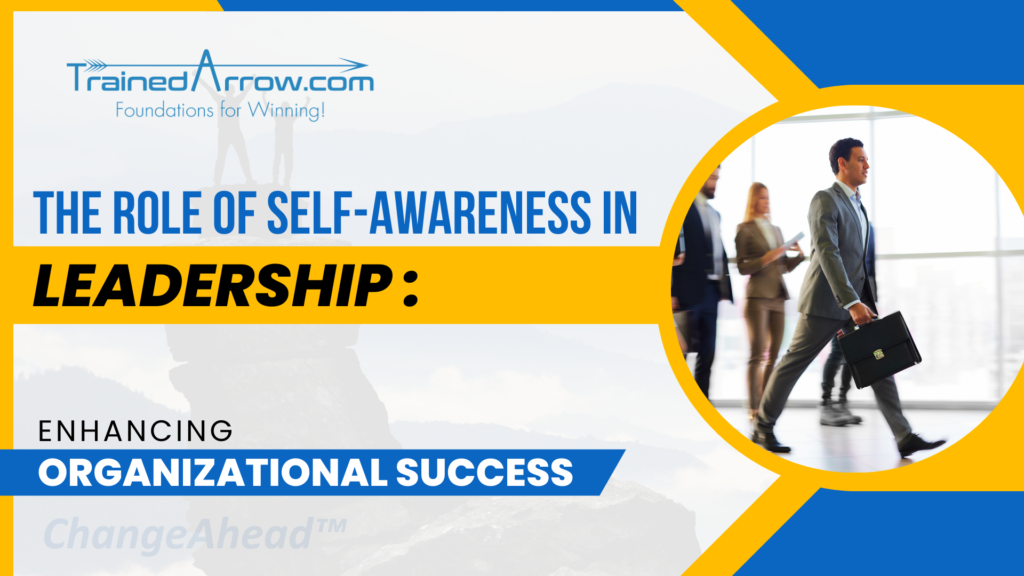Introduction
Effective leadership is pivotal in steering organizational success. One key attribute that distinguishes great leaders from good ones is self-awareness – because Self-Awareness is foundational to being a Leader. This blog highlights the role of self-awareness in leadership, outlining how it influences decision-making and fosters a healthy workplace culture.
Self-Awareness in Leadership
Self-awareness in leaders is crucial for recognizing their strengths and weaknesses, which guides them in making informed decisions and effectively managing teams. It’s about understanding one’s personal impact on others and the organization as a whole. A self-aware leader can objectively evaluate their own thoughts and behavior, understanding how it affects team dynamics and overall business performance.
Benefits of Self-Aware Leadership
1. Improved Decision-Making
Leaders who are self-aware are more likely to make decisions that are not only beneficial in the short term but sustainable in the long run. They can assess situations with clarity and make choices that align with both their personal values and organizational goals. This mindfulness leads to more strategic and thoughtful decisions.
2. Enhanced Team Dynamics
Self-aware leaders foster open communication and trust, which are essential for collaborative environments. By recognizing their own emotional triggers and biases, they can create a more inclusive and supportive atmosphere. This openness encourages team members to voice their opinions and ideas, leading to a more innovative and engaged workforce.
3. Adaptability
A self-aware leader can adapt their style to meet the needs of their team and the demands of the business. They are attuned to the changing dynamics within the team and can modify their approach to provide the necessary support and guidance. This flexibility helps in navigating through various challenges and ensures that the team remains cohesive and productive.
Cultivating Self-Awareness
Developing self-awareness involves regular reflection, seeking feedback, and engaging in leadership coaching. Here are some effective methods to cultivate self-awareness:
-Regular Reflection: Taking time to reflect on one’s actions, decisions, and their outcomes helps in gaining insights into personal behavior and thought processes.
-Seeking Feedback: Actively seeking feedback from peers, subordinates, and mentors provides a broader perspective on one’s strengths and areas for improvement.
-Leadership Coaching: Engaging in professional development and leadership coaching can provide the tools and guidance needed to enhance self-awareness. Tools like 360-degree feedback and professional development workshops can be particularly effective in this regard.
Real-World Examples
Leaders from top companies like Microsoft and IBM often share their experiences on how self-awareness has helped them navigate complex business challenges and lead more effectively. For instance, Satya Nadella, CEO of Microsoft, emphasizes the importance of empathy and self-awareness in leadership, which has been instrumental in transforming Microsoft’s culture and business strategy. Similarly, Ginni Rometty, former CEO of IBM, has spoken about how self-awareness and continuous learning have been key to her leadership approach.
Conclusion
Leaders who invest in developing their self-awareness can dramatically improve their influence and effectiveness, ultimately driving better organizational outcomes. Fostering this trait is not just beneficial; it’s essential for anyone aiming to lead in the modern workplace. By prioritizing self-awareness, leaders can create a positive ripple effect that enhances team performance, drives innovation, and contributes to long-term organizational success.
![]()








